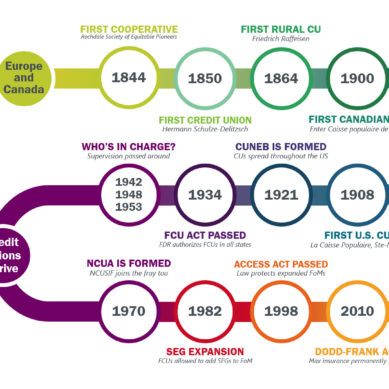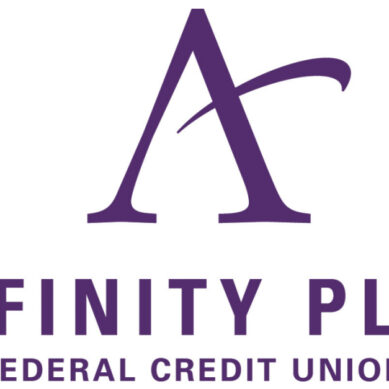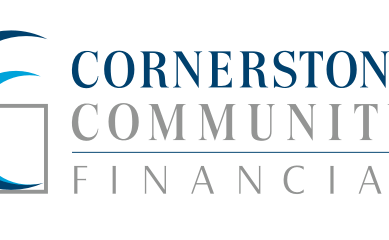If you can’t keep track of the efforts to kill the Consumer Financial Protection Bureau’s final rule limiting many credit card late fees to $8, don’t feel bad.
Opponents of the proposal are trying to shoot it down everywhere. So far, they are failing. The rule still is slated to go into effect next month.
It may seem like years ago, but it was only last month that the agency that Republicans and credit union trade groups love to hate issued a final rule on credit card late fees. The agency lumped those late fees into the category of “junk fees,” a Biden Administration term that includes everything from fees tacked onto the price of a ticket to go to a baseball game to fees consumers are charged if they overdraw their bank accounts.
The rule would lower most credit card late fees to $8, specifically at card issuers with more than one million open accounts. Card issuers can charge more if they can demonstrate that it costs more than $8 to collect the money they are owed.
Although the rule will not include many credit unions, America’s Credit Unions has sharply criticized the rule. “An $8.00 late fee does nothing to encourage responsible consumer behavior,” America’s Credit Unions President/CEO Jim Nussle wrote in letters to members of Congress. “We would note that various governmental entities, including the federal government, set late fees above that $8.00 level for a wide range of payments.”
In urging members of Congress to use their power to nullify the rule, Nussle said that large banks will be able to raise their interest rates to make up for reduced revenue due to the rule. Credit unions, on the other hand, are subject to an interest rate cap. He also said that while small credit unions might be exempt from the rule, market pressure will force them to lower their late fees too.
The fight to kill the late fee rule is being fought on two fronts, the courts and on Capitol Hill. The court fight is the messiest, so here’s a handy guide to the fight that has bounced between Texas and Washington, D.C.
The court fight
The U.S. Chamber of Commerce, the American Bankers Association, and Texas business groups filed suit in the U.S. District Court for the Northern District of Texas, challenging the rule just days after the CFPB issued it.
The groups said that Congress has specifically authorized the use of penalty fees to collect overdue debts. “The rule, which upends more than a decade of regulations, is unlawful,” the suit states. In addition, the trade organizations said that the rule was based on data that the CFPB has not made public, and that, in addition, they do not have enough time to implement the rule.
For good measure, they pointed out that everything the CFPB has done, including issuing the new rule, could be unconstitutional. The Supreme Court will rule in the coming months on whether the CFPB’s funding mechanism is unconstitutional because the agency is not subject to the annual appropriations process. Funding for the CFPB comes from the Federal Reserve.
The lawsuit is about decisions that were made in Washington, D.C., so an obvious question came up immediately to CFPB defenders: why was the suit filed in Texas?
A progressive group said it had the answer to that question. Accountable.US reported on April 15 that since 2017, 63% of the lawsuits that the U.S. Chamber of Commerce has filed challenging regulations have been filed in district courts covered by the Fifth Circuit Court of Appeals. That appeals court is among the most conservative in the country according to Accountable.US.
Also of note, the Fifth Circuit Court of Appeals is the court that issued a decision that the CFPB funding mechanism is unconstitutional. That case is now up on appeal before the U.S. Supreme Court.
Accountable.US argued that the Chamber and ABA went court shopping when it decided to challenge the credit card fee. “The U.S. Chamber and the big banks they represent have corrupted our judicial system by cherry picking venues to avoid having their lawsuits heard by a fair and neutral federal judge,” Tony Carrk, the group’s executive director said. “It’s time the U.S. Chamber stops clogging the courts with baseless lawsuits designed to enrich corporate CEOs at the expense of everyday families.”
The Texas judge who was presiding over the case agreed. “This case does not belong in the Northern District of Texas and certainly not in the Fort Worth Division,” U.S. District Judge Mark Pittman, of the Northern District of Texas, wrote. He added, “Venue is not a continental breakfast; you cannot pick and choose on a plaintiffs’ whim where and how a lawsuit is filed.”
Pittman pointed out that “there are ten attorneys spanning five different firms or organizations representing the various Parties in this case. Of the ten, eight list their offices in the District of Columbia.” Pittman agreed with the Biden Administration and the CFPB that his court was not the place to argue the lawsuit and approved their requested transfer of the case to the U.S. District Court for the District of Columbia.
Usually that would be the end of the venue argument, but in this case it was not. The Fifth Circuit Court of Appeals (yes, the one that critics contend is so conservative) decided that Pittman erred when he approved the transfer of the case to D.C.
The Chamber and the other plaintiffs had requested an injunction against the CFPB rule. Pittman did not rule on the injunction and simply transferred the case to another court. The appeals court said that Pittman erred by failing to rule on the injunction and only considering the venue issue.
That still was not the end of the mess. The CFPB lawyers pointed out that the family of Judge Don Willet of the Fifth Circuit Court of Appeals owned shares in Citigroup, whose banks would find themselves subject to the rule. Willet was the author of the decision sending the case back to Texas. That led to Willet asking the U.S. Judicial Conference’s Committee on Codes of Conduct if he could rule on the case.
The panel said it was permissible for Willet to be involved in the case. So currently, the lawsuit against the CFPB final rule about credit card late fees is back in Texas. As of this writing, there is no injunction against the rule issued by a court.
The Congress fight
Congressional Republicans, who hate just about everything the CFPB does, have mounted their own fight against the rule. Using the Congressional Review Act, on April 17, the House Financial Services committee approved H.J. Res 122, which would nullify the rule. “Unfortunately, the current administration does not believe in the concept of debt owed,” Rep. Andy Barr, R-Ky., chairman of the Financial Services Committee’s Financial Institutions and Monetary Policy Subcommittee said, during the markup of the resolution. “We should not want our consumer protection agencies to encourage bad behavior.”
“The CFPB was set up to ensure unbridled power for an authoritarian agency head who wants to exercise partisan and unreasoned control over financial services, with the ultimate goal of turning financial institutions into public utilities,” Barr charged. “Due to this lack of oversight, the CFPB has acted unilaterally and arbitrarily outside of its statutory mandate, routinely without engaging in notice and comment rulemaking and instead operating through rulemaking by guidance, press releases, or blog posts.”
Rep. Maxine Waters, D-Calif, the ranking Democrat on the Financial Services Committee, argued that the rule would be popular. “While mega-banks and congressional Republicans may not like it, the American people support the CFPB and their junk fee initiative,” she said. “The last I heard, the banks and the credit card companies are doing extremely well.”
Senate Banking Committee ranking Republican, Sen. Tim Scott of South Carolina, introduced his own version of the resolution, S.J Res. 70. “While Americans struggle to keep pace with record inflation under President Biden, now is the wrong time to play political games that limit access to credit,” Scott said when he introduced the resolution. “But that’s exactly what the CFPB’s rule to limit credit card late penalties will do – it will decrease the availability of credit card products and important financial services, particularly for Americans who need them most.”
The House and Senate resolutions were introduced under the Congressional Review Act, which allows Congress to nullify major rules issued by regulatory agencies. This Act gives the Republicans a way to thwart the CFPB but it also poses a problem for them: such a resolution requires the signature of the president. President Biden is a huge fan of the CFPB’s “junk fee” campaign.
Therefore, even if the resolution was approved by the House and Senate—a big if, given the fact that very little gets through the House and Senate these days—Biden certainly would veto it. That led to a former Obama Administration official to ask a pointed question during a House subcommittee hearing on the CFPB. Chris Peterson, now a law professor at the University of Utah, asked House Republican members of the subcommittee, “Don’t you have anything better to work on?”
Why are congressional Republicans even bothering with the resolution if Biden will veto it? The folks at Accountable.US think they have the answer. Last week, the progressive group issued a lengthy report that contends that Financial Services Committee Republicans received millions of dollars in campaign contributions from groups fighting against the rule.































































